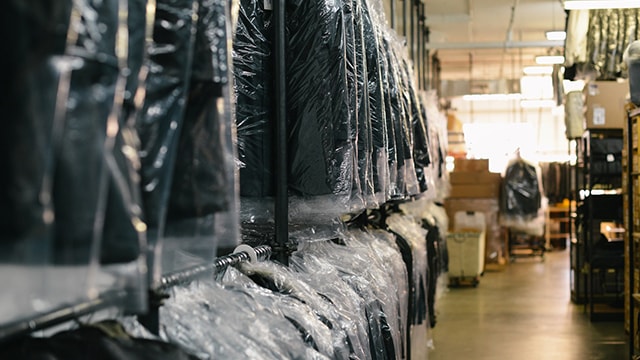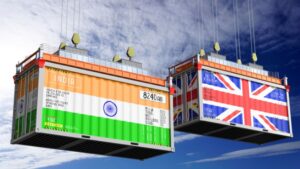
Since last few years, there was widespread apprehension regarding exodus of garment factories from Bangalore and now it seems to have really started. Most of the reasons responsible for this situation are the usual ones like, no further easy availability of land (on favourable terms and conditions), increasing labour shortage, growing cost of living of workers, crumbling infrastructure, etc. And the recent one is the State Government’s policies which are not favourable enough compared to other states, or as desired by the apparel export industry. In a recent visit to Bangalore, Team Apparel Online had a detailed discussion on this issue with some of the apparel manufacturers, who are in the process to move outside for expansion, and to initiate satellite factories.
“There are multiple reasons to choose places for factories out of Karnataka. Finding labour in Bangalore is a challenge for us, as minimum wage is quite high here. Living wage requirement in Bangalore is also the highest. We even feel that the textile policy in Karnataka doesn’t offer much to garment exporters. It is actually a very ‘inclusive’ kind of policy while Odisha and Andhra Pradesh have the most forward textile policies and give incentives on land, water, electricity, PF and ESI. Therefore, we are looking for multiple locations. As overall prices in India are rising and we have to strongly compete with Bangladesh, Cambodia, Vietnam and their dropping prices, I feel that Odisha and Andhra Pradesh should be allowed to maintain our price level,” said Adil Katrak, ED, Color Lines Clothing. The company, manufacturing kidswear for most of the top brands of the world, will invest close to Rs. 24 crore for capacity enhancement.

Industry giants like Madura Clothing (Aditya Birla Group), having 9 factories across Bangalore offering employment to 11,000 people, is now using 60 buses for workers’ transportation to all factories. Two of its bigger factories are near the Tamil Nadu border; but to get more workers from this state, it has added a factory here and which is just 30 kilometres from Bangalore border. Moving forward and continuously expanding, this company has found solutions to labour problems in the form of ‘satellite factories’. It has established five small units in nearby villages of Bangalore, while two are still under process. These satellite factories are the ‘micro manufacturing units’, where only stitching operations are done. The maximum number of people working there is 200 on 100 stitching machines. As of now, five such factories are producing nearly 2 lakh pieces per month.
Shortage of electricity should be solved in the city as soon as possible. Clean supply of power is needed. Exporters added that if one chooses to go for load enhancement, one has to increase one’s installation capacity for electricity which is again a huge process. Things should become more simple, easy and corruption free-for the industrialists to grow.
Despite these developments, there are some companies which are bound by limitations due to their specific niche product category and are forced to run their factory within Bangalore. Vipin Sethi, Director, Fashion Matrix Overseas (ENVS Eco-Friendly Digital Fabric), which is well known for Bavarian garments, shares, “A couple of years back, it was very difficult to get labour in Bangalore because there were factories opening in every nook and corner. Now it has settled. The players who could not sustain vanished, and hence, many factories closed down. A lot of people who had just entered into the export quoted ridiculous prices to the customers and spoiled the market, and later faced losses and closed down. Some of them moved outside the city to villages and other states, trying to find cheap labour there. But this is a winning strategy only for the high-volume-low-price segment based exporters. It is not the right option for us as we are serving niche clients.” As Vipin pays little higher wage as compared to the local industry rate, he doesn’t face labour availability crisis in a larger way.
Vipin, of course, is also sceptical about the state policies, He worriedly states, “As far as State Government policies are concerned, I feel that the same don’t work for my company. They basically tell you to set up a unit in an outskirt or in certain rural areas and then they give you some 15 to 20% subsidy of total capital investment but for our kind of products, we require specialized tailors and we can’t take the risk of going to rural areas and start from scratch there, because it is extremely difficult to train people in such places to stitch my kind of garments. We pay at least 10 per cent higher wages above the industry standard in Bangalore and get the quality we need. Due to our product differentiation, we can afford this extra wage.” He added that ‘Inspector Raj’ (over regulation/supervision by Government in non-essential areas) prevailing largely in spite of following all local as well as international laws (as per his buyers’ need) and regular harassments by inspectors and the administration are the other drawbacks faced by him for having factory within Bangalore city.
According to Vipin, there is also plenty of land available in Bangalore in the name of agriculture but there is no agricultural activity taking place on these lands for last 15-20 years. Industrialists can’t purchase these lands as restrictions are there. He worriedly shares,“Why the State Government itself does not come forward to buy these lands from the farmers or cultivate these lands and then sell this to the industry so that the entire process becomes easier for us? If we go directly to buy land, we are always worried about how clean the documents are or if there are legal issues pending over such lands. We had a similar negative experience in this regard as after 12 years of purchasing industrial land, we faced issues while we followed all laws of the land. These issues scared us and we are no more comfortable buying private land. We will prefer to buy land from the Government and the Government should give us that land at an affordable price with all basic infrastructures so that we can easily expand.”






